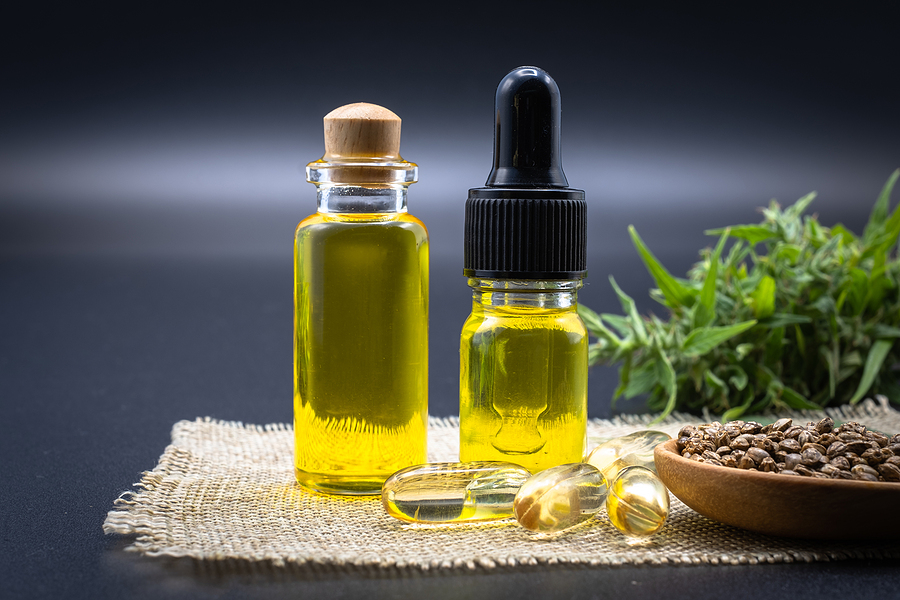Cannabidiol, or CBD, a compound derived from the marijuana plant, appears to show promise in blocking the replication of the COVID-19 virus and printing it from being spread, according to laboratory tests.
In the lab tests, CBD showed it can inhibit how the coronavirus spreads in human lung cell samples and suppressed COVID-19 infections in the lungs and nasal passages of mice, and Marsha Rich Rosner, a professor of cancer research at the University of Chicago, believes the findings will make a strong case for clinical trials, reports Reuters.
Although research in animals doesn’t always pan out in humans, the success of CBD may not be limited to the lab. For instance, people who take Epidiolex, a form of CBD approved by the US Food and Drug Administration (FDA) to treat epilepsy, have shown to test positive for COVID-19 at considerably lower rates than those not on the drug, according to studies.
However, before you rush off to stock up on CDB oils, the sort of CBD you can buy online or on the high street will not have a high enough concentration of the compound to make any difference, as the researchers achieved their results using a highly purified CB powder.
Rosner said: “We had a vision of people going to take CBD and saying, ‘OK, now I don’t need to be vaccinated, now I don’t need a mask.’ That’s not the case.”
She added that you should never substitute CBD for getting vaccinated or taking any other precautions.
Instead, Rosner and her colleagues are calling for human clinical trials to determine the dosage of purified CBD that might help treat a new COVID-19 infection.
“We are actually suggesting that a trial be done similar to what you might do with vaccines, either as a preventive trial or an early-stage treatment after you’ve been tested,” Rosner said.
Rosner has support in the scientific community, such as Dr Amesh Adalja, a senior scholar with the Johns Hopkins Center for Health Security, who believes that the treatment is promising, but needs more research.
“This is an early study that needs further confirmation but does provide a pathway for new ways to help combat COVID-19,” Adalja said, adding that further study on the delivery of CBD, concentrations, and administration of CBD in a protective randomised trial is needed to explore its clinical applicability.
Rosner and the team at the University of Chicago had hoped that the anti-inflammatory properties of CBD could help prevent inflammation from damaging the lungs and other organs in the bodies of COVID patients.
However, the lab tests showed that CBD directly inhibited the virus’s ability to replicate, and mice treated with CBD for one week were able to suppress COVID-19 infection in their lungs and nasal passages.
“We just wanted to know if CBD would affect the immune system,” Rosner said.
“No one in their right mind would have ever thought that it blocked viral replication, but that’s what it did.”
To see whether CBD has any real-world potential, the research team analysed data from 1,212 epilepsy patients prescribed Epidiolex.
People taking Epidiolex were 35 to 52 per cent less likely to suffer a COVID-19 infection than an equal number of folks from a control group not prescribed the drug, according to data drawn from the federally funded National COVID Cohort Collaborative.
The findings were published on 20 January in the journal Science Advances.
It is thought that CBD fights the coronavirus by promoting cells to release interferon, a biochemical that damages the ability of viruses to replicate in cells.
Rosner explained that the research found that CBD increases the amount of interferon released. But CBD does not impede COVID-19 from entering cells, it only stops it from replicating once it has entered a cell.
But high amounts of CBD would likely be required for this to work, which is where the purity, dosage and the type of CBD come into play.
Rosner said that the way that CBD is formulated will determine how much can enter the bloodstream.
“If it’s introduced as an oil, it’s not very water-soluble and often will go to the liver and get metabolised and broken down. You have to make sure there’s enough in the blood for it to be active.”
It’s also worth keeping in mind that smoking weed will not help you get enough CBD to protect yourself either, and you’ll ultimately end up having too much THC, the active ingredient in marijuana that provides the ‘high’.
“We tested THC. It does not work. Furthermore, when we added THC to CBD, it prevented CBD from blocking the replication of the virus,” Rosner said.
If you’re looking for premium CBD products, visit our online store today.

